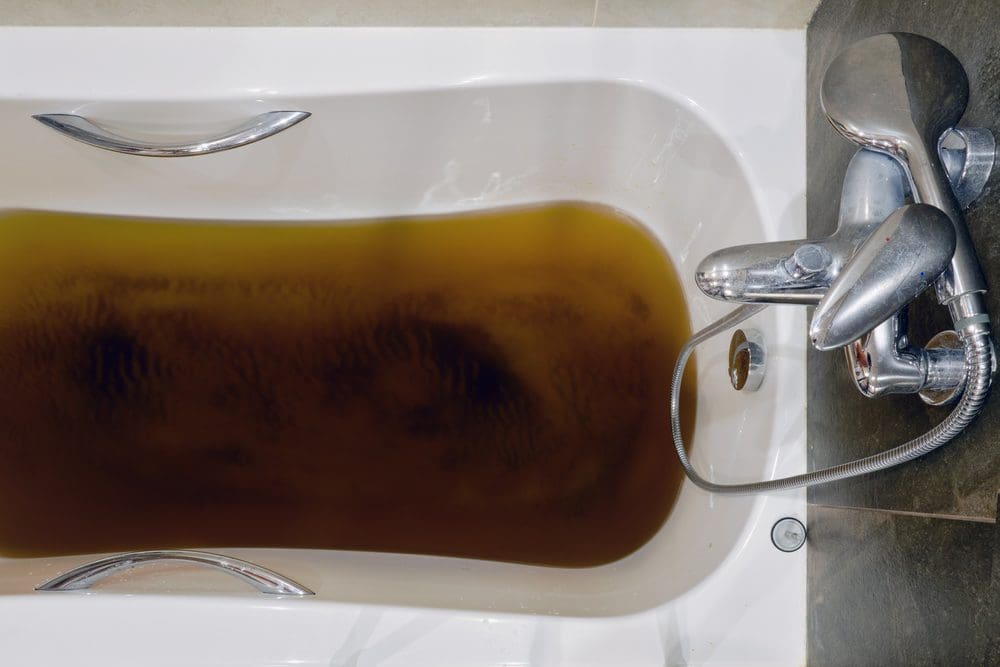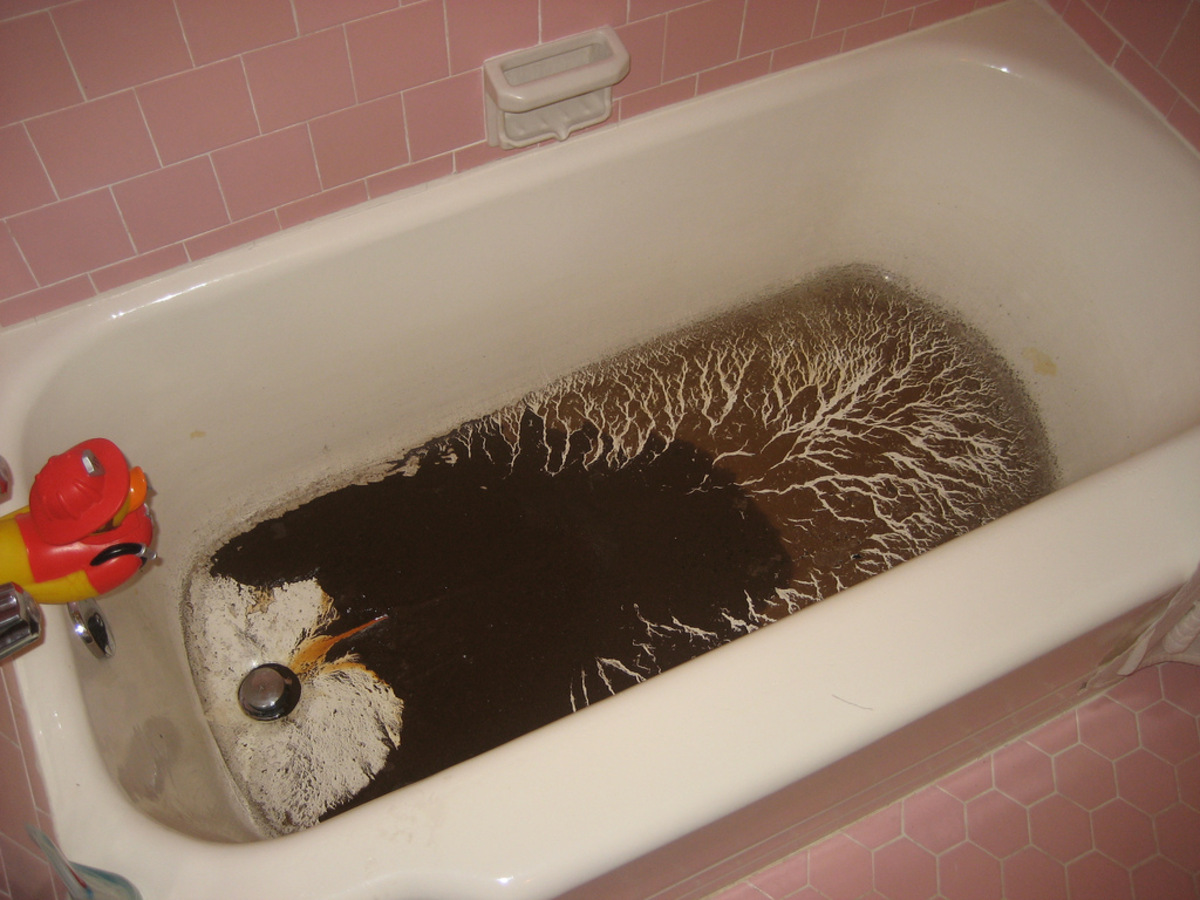This article further down relating to Why is Sewage Backing Up Into My Bathtub? is rather interesting. Give it a try and draw your own findings.

Sewer backup in the bath tub can be a stressful and unhygienic problem for any property owner. Not just is it troublesome, however it likewise poses severe wellness dangers and suggests underlying concerns with the plumbing system. Understanding why sewer is coming up with the bath tub is vital for taking proper action to resolve the trouble effectively.
Intro to the Problem
Typical Reasons for Sewer Back-up
Blockages in the Sewer Line
Among the most usual root causes of sewage backup is an obstruction in the sewage system line. This can occur because of the build-up of debris, grease, or international objects in the pipes, preventing appropriate circulation and causing sewer to back up right into your bath tub.
Tree Root Intrusion
Tree origins looking for moisture and nutrients can infiltrate sewage system lines via small fractures or joints. In time, these origins can grow and broaden, triggering considerable damages to the pipelines and bring about sewage back-up problems.
Recognizing the Trouble
When sewer starts backing up into the tub, it's a clear indication of a problem with the drain system. The wastewater that should be moving far from your home is instead locating its way back right into your home, which can result in substantial damage and health hazards.
Possible Causes
A number of variables can add to sewage back-up in the bath tub. From obstructions in the drain line to issues with the plumbing facilities, identifying the source is important for discovering an option.
Aging Infrastructure
Older homes may have dated plumbing systems that are a lot more susceptible to deterioration, fractures, and damage. As pipes age, they end up being extra prone to leaks and clogs, raising the probability of sewer back-up events.
Heavy Rainfall or Flooding
Throughout durations of heavy rainfall or flooding, the drain system might end up being overloaded with excess water, triggering backups and overflows. This can lead to sewage backing up into bath tubs and various other fixtures inside the home.
Signs of Sewage Back-up
Foul Odors
Unpleasant odors rising from drains or components, particularly in the washroom, might suggest sewage backup issues. These smells are usually solid and relentless, indicating a problem that calls for prompt focus.
Slow Draining Fixtures
Bath tubs, sinks, and commodes that drain gradually or not at all could be experiencing sewage backup. If multiple fixtures are influenced all at once, it's likely that the concern originates from a typical point, such as the primary sewer line.
Gurgling Noises
Unusual gurgling or bubbling noises originating from drains pipes when water is running elsewhere in your house are indicative of air trapped in the plumbing system. This air buildup can result from sewage backup and need to be checked out immediately.
Wellness Dangers Associated with Sewer Back-up
Contamination of Water Supply
Sewer backup can contaminate the water in your house, positioning a severe wellness danger to you and your household. Direct exposure to contaminated water can bring about stomach issues, skin infections, and various other illnesses.
Mold Development
Wetness from sewer backup can develop perfect conditions for mold development in your home. Mold spores can aggravate respiratory system issues and cause allergies in sensitive individuals, making punctual cleaning necessary.
Spread of Illness
Sewer contains hazardous bacteria, infections, and bloodsuckers that can trigger a range of conditions, consisting of hepatitis, cholera, and gastroenteritis. Coming into contact with sewer or infected surfaces places you at risk of infection.
Tidying up After Sewage Backup
Disinfection Procedures
Extensively disinfect and sanitize impacted locations after sewage back-up to remove harmful germs and prevent mold growth. Usage suitable cleansing items and safety equipment to guarantee secure and reliable clean-up.
Remediation of Impacted Locations
Fix any kind of damages to flooring, wall surfaces, or fixtures triggered by sewer back-up. Depending on the degree of the damages, you might need to replace carpeting, drywall, or various other products to recover your home to its pre-loss problem.
Immediate Actions to Take
Turning Off Supply Of Water
In case of sewage back-up, it's vital to switch off the water supply to avoid additional contamination and damages. Find the major water shutoff valve in your house and shut it off up until the concern can be resolved.
Calling a Specialist Plumber
Taking care of sewage backup is not a do it yourself work. Get in touch with a certified plumber with experience in dealing with sewage-related problems to examine the scenario and perform necessary repair services or cleanups.
Preventing Contact with Polluted Water
Till the sewage backup is solved, stay clear of contact with contaminated water to avoid the spread of germs and pathogens. Wear safety gear if you must remain in the afflicted location and clean your hands thoroughly later.
Preventive Measures
Normal Maintenance of Sewer Lines
Arrange normal evaluations and upkeep of your drain lines to identify and deal with potential problems before they escalate into significant problems. This can consist of clearing out debris, examining for tree root invasion, and repairing any kind of broken pipelines.
Installing Bayou Shutoffs
Take into consideration installing bayou shutoffs in your plumbing system to avoid sewer from flowing back into your home during durations of heavy rainfall or flooding. These shutoffs automatically close when water starts backing up, protecting your property from contamination.
Correct Disposal of Household Waste
Stay clear of purging anything besides toilet tissue and human waste down the toilet to avoid blockages and blockages in the sewer line. Dispose of oil, oil, and other household chemicals appropriately to lessen the danger of plumbing troubles.
Why Is Water Backing Up in My Bathtub When I Flush My Toilet?
What to do about a sewer line clog
First, don’t bother with plunging. No amount of plunging will dislodge the clog in a sewer line. The clog is too far away. Plungers are for clogs in the toilet itself, not the sewer line. Plus, the most likely causes of a sewer clog are:
- Tree roots
- Flushed toys or feminine products
- Grease buildup
Those items don’t move easily. And in the case of tree roots, the roots need to be cut out of the pipe and the pipe will need to be repaired.
You’ll need a closet auger. A closet auger is a type of plumber’s snake with a protective cover to keep from scratching the delicate porcelain toilet. If the clog is further down, you may need to remove the toilet or use one of your cleanouts to get to the clog.
We also recommend doing a video inspection of the drain to ensure that the cause of the clog has been completely removed. Otherwise, you could have the same problem again in a few days or weeks.
https://mspplumbingheatingair.com/blog/why-is-water-backing-up-in-my-bathtub-when-i-flush-my-toilet

As a passionate reader on Why is There Sewage Coming Up Through the Bathtub, I imagined sharing that section was a good idea. You should take the opportunity to promote this page if you enjoyed it. Thank-you for taking the time to read it.
Click Here
Comments on “Top Reasons Behind Sewage Backflow in the Bathtub”